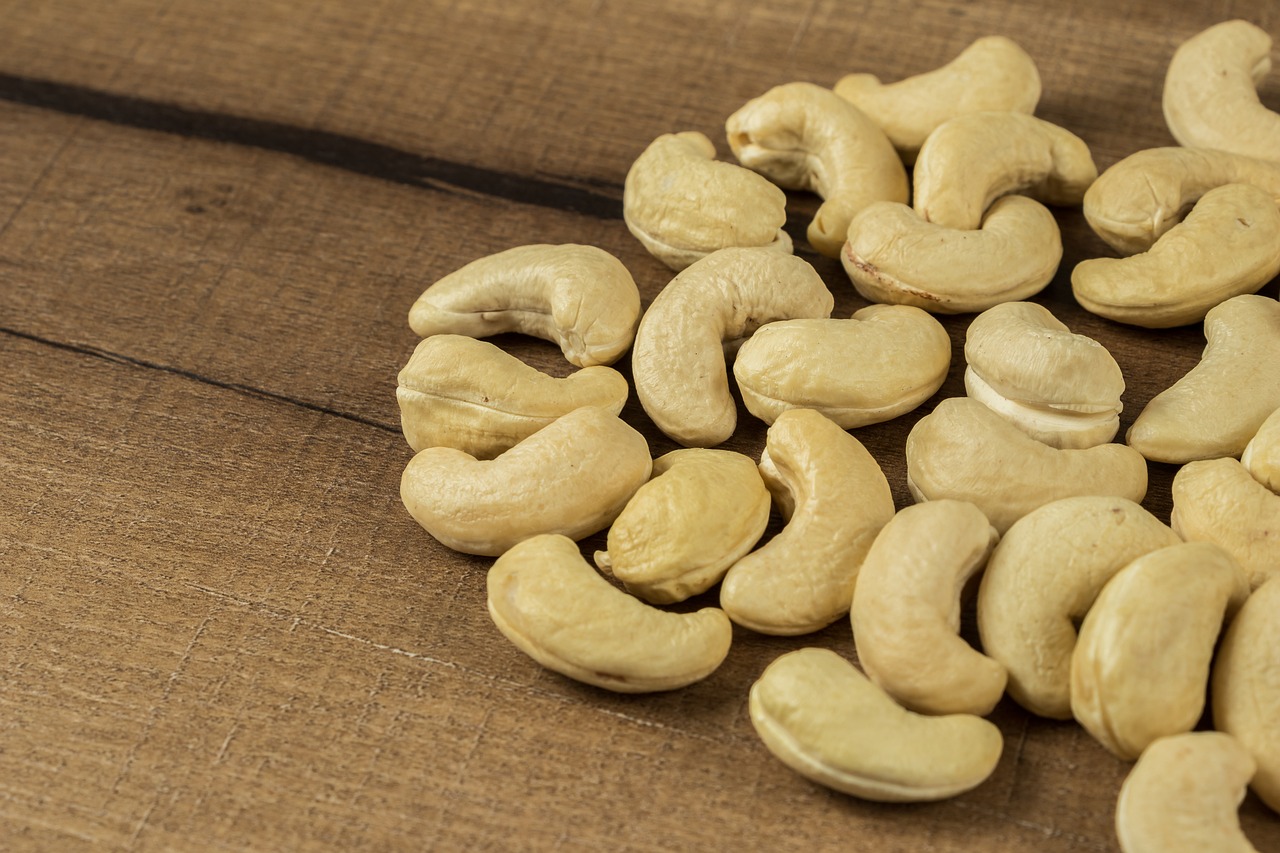
Cashews are a widely enjoyed nut known for their unique flavor, creamy texture, and versatility in cooking. Originating from the cashew tree in Brazil, they are used in various dishes, snacks, and dairy-free products. In addition to their taste, cashews offer numerous health benefits due to their rich nutrient profile. A typical 1-ounce serving contains 157 calories, 5 grams of protein, 12 grams of fat (primarily heart-healthy monounsaturated fats), 9 grams of carbohydrates, 1 gram of fiber, and 1.7 grams of sugar. They provide significant amounts of essential nutrients, including copper, magnesium, manganese, phosphorus, zinc, iron, and vitamin K. Cashews also contain antioxidants and phytonutrients that help combat oxidative stress and inflammation in the body. The article discusses the health benefits of cashews as follows.
- Cashew for heart health- Cashews contain heart-healthy monounsaturated and polyunsaturated fats that lower bad cholesterol and increase good cholesterol, reducing heart disease risk. Additionally, they provide magnesium, which helps regulate blood pressure and support heart function, thereby lowering the chances of hypertension, stroke, and heart attacks. Overall, cashews are a valuable addition to a heart-healthy diet.
- Cashew for weight management- Research indicates that consuming cashews in moderation does not lead to weight gain, despite their high fat content. The unsaturated fats in cashews are healthier and can aid in weight management. Their fiber and protein content promote fullness, helping to control appetite and prevent overeating. Studies show that eating nuts is linked to a lower risk of obesity. Including cashews in a balanced diet can support healthy weight maintenance while delivering essential nutrients.
- Cashew for bone health- Cashews are rich in essential minerals like magnesium, phosphorus, and calcium that are important for strong bones. They also provide copper, which is important for collagen production needed for bones and tissues. A lack of copper can result in brittle bones and a higher risk of osteoporosis. Regular consumption of cashews can help prevent copper deficiency and promote long-term bone health.
- Cashew for brain function- Cashews are beneficial for brain health due to their content of healthy fats, antioxidants, and important nutrients like zinc, iron, and magnesium. Magnesium plays a key role in regulating neurotransmitters, which are crucial for brain and nervous system communication. Sufficient magnesium levels are linked to improved memory, learning, and mood, while deficiency may lead to depression and anxiety. Thus, incorporating cashews into your diet can enhance mental well-being.
- Cashew for eye health- Cashews are rich in lutein and zeaxanthin, antioxidants important for eye health. These compounds are found in the retina and help shield the eyes from blue light and harmful UV rays. They also lower the risk of age-related macular degeneration and cataracts, which can lead to vision loss in older adults. Eating cashews regularly can support long-term eye health and guard against vision problems.
- Cashew for immunity- Zinc is crucial for immune function, and cashews are a good source of this mineral. It helps maintain a healthy immune response and supports the production of immune cells. A lack of zinc can weaken immunity, increasing vulnerability to illness. Including zinc-rich foods like cashews can strengthen the immune system and improve the body’s defense against diseases and infections.
Additional tips- Cashews are versatile and can be included in various meals. They can be enjoyed as a convenient snack, added to smoothies for creaminess, sprinkled on salads for crunch, and blended into dairy-free sauces for pasta or as dips. They also work well in raw desserts, enhance the richness of Indian curries, and serve as a nutritious alternative to peanut butter when made into cashew butter. Additionally, cashew milk is a good dairy-free option for smoothies, coffee, and cereals.
Precautions- Cashews provide various health benefits, but there are potential side effects, particularly with excessive consumption. They are high in calories, which can lead to weight gain if not eaten in moderation. Some individuals may experience allergic reactions, ranging from mild itching to severe anaphylaxis, and should avoid cashews and seek medical advice if they suspect an allergy. Many commercial cashews are roasted and salted or coated in sugar, so choosing raw or lightly salted options is recommended to avoid excess sodium or sugar. Additionally, cashews contain oxalates that may contribute to kidney stone formation in susceptible individuals, so those with kidney issues should consult a healthcare provider before consuming them in large amounts.
-Triparna







